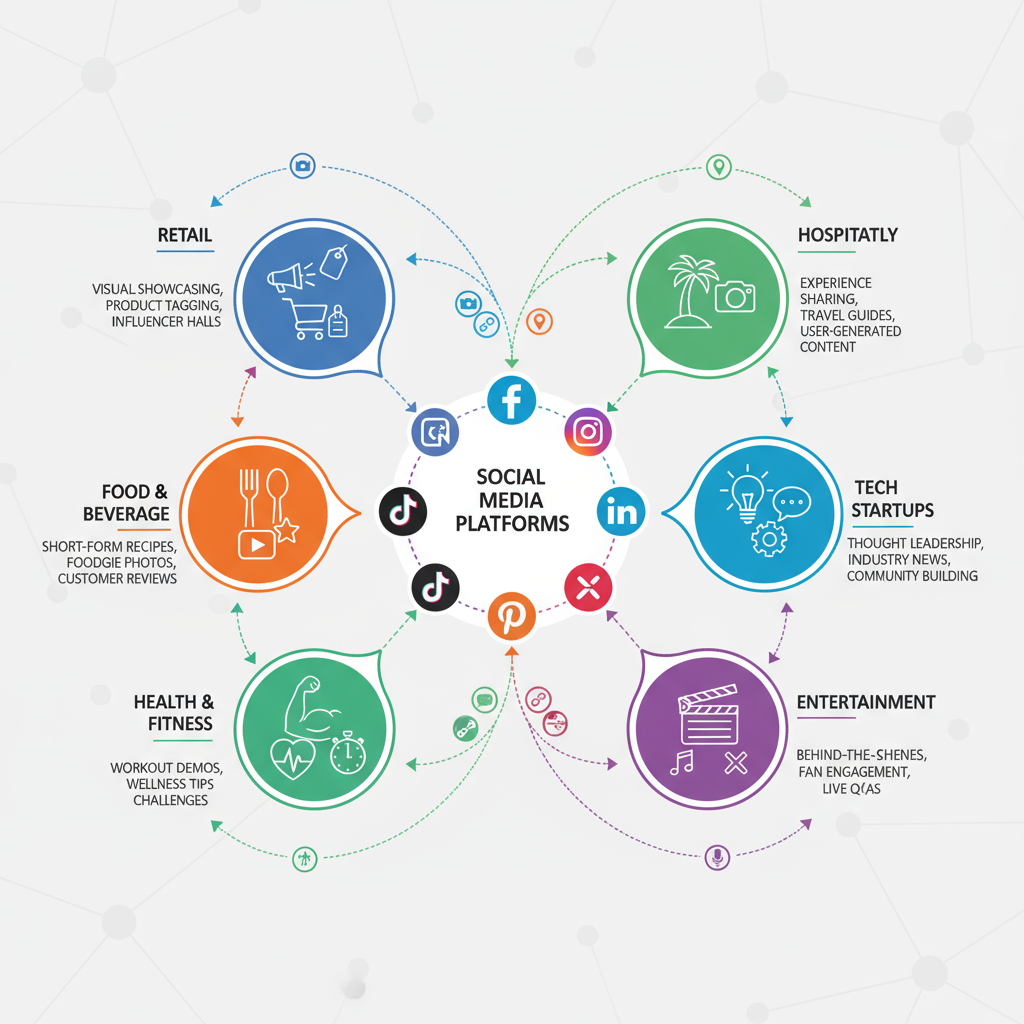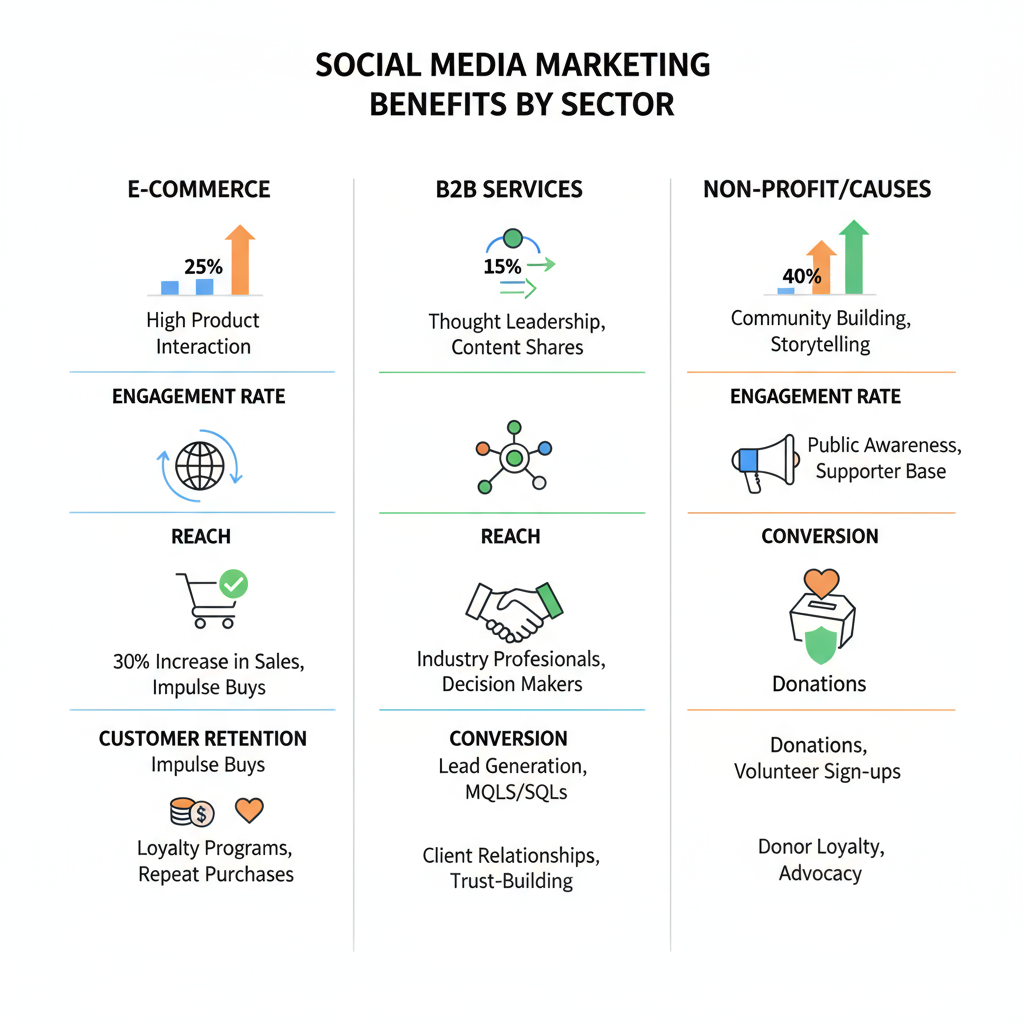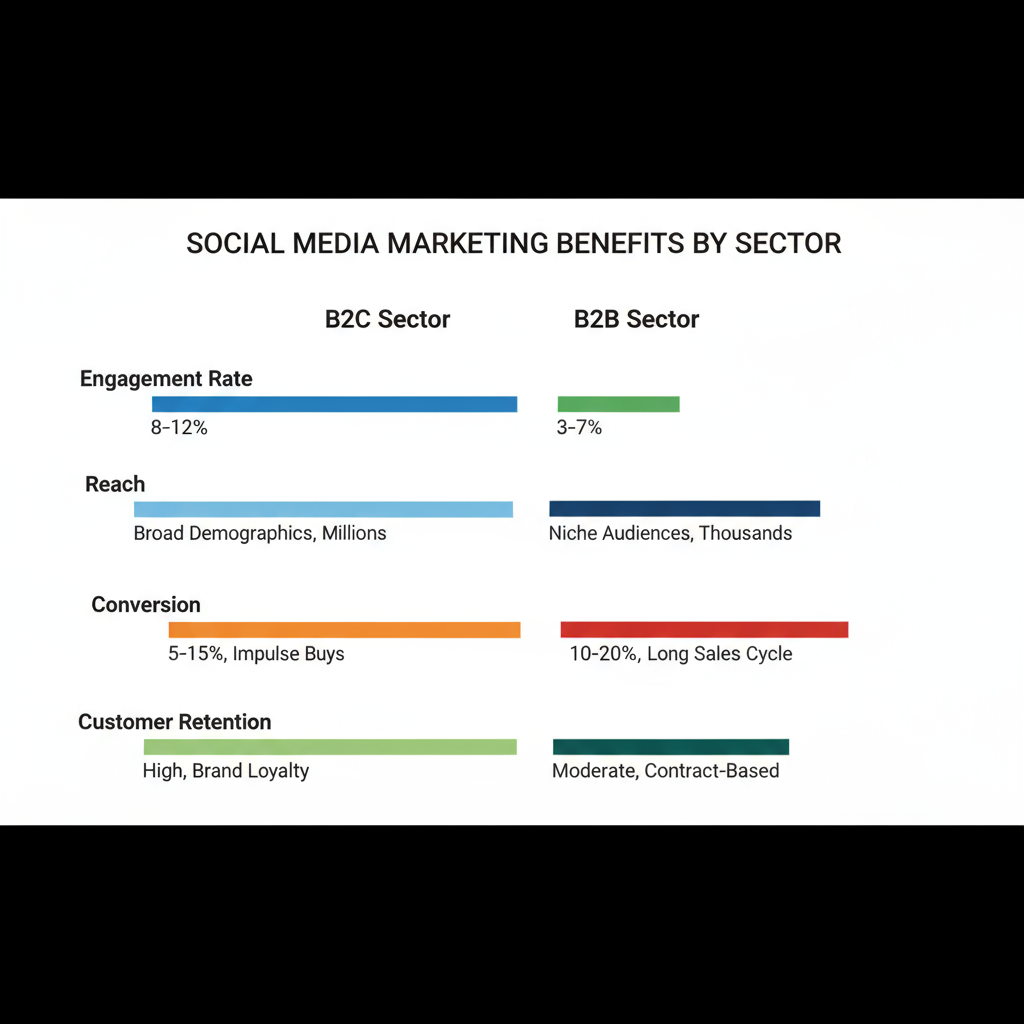Successful Businesses That Use Social Media Marketing
Discover how diverse industries use social media marketing to boost brand growth, engage audiences, and drive measurable sales and loyalty.

Introduction to Social Media Marketing in Modern Business
In today’s hyperconnected digital landscape, businesses that use social media marketing gain a clear competitive edge. Platforms like Facebook, Instagram, TikTok, LinkedIn, Twitter, and YouTube are now indispensable for enhancing brand visibility, engaging customers, and driving revenue. With billions of active users worldwide, social media has become a core business channel—perfect for reaching and interacting with target audiences in real time.

From startups to global enterprises, companies in virtually every industry are building their brand stories, showcasing products, and fostering lasting customer relationships through these networks.
---
Benefits of Social Media Marketing for Brand Growth
Social media marketing delivers powerful advantages to brands across diverse sectors:
- Increased brand awareness through consistent, shareable, and engaging content.
- Cost-efficient advertising with advanced targeting and retargeting options.
- Real-time customer interaction enabling rapid feedback and relationship building.
- In-depth analytics to measure performance and refine strategies.
- Customer loyalty strengthened through personalized communications.
These benefits explain why businesses that use social media marketing often see sustained growth in both audience reach and conversion rates.
---
Retail and E-Commerce: Driving Direct Sales with Social Media
Retailers and e-commerce companies are turning social platforms into revenue-generating hubs. Features such as shoppable Instagram posts and TikTok Shop let customers complete purchases without leaving the app.
Examples of winning tactics:
- Fashion brands flaunting new lines via Instagram Reels.
- Home décor retailers using Pinterest to inspire stylish living.
- Hobbyist shops running precisely targeted Facebook Ads for niche segments.

By pairing engaging visuals with influencer marketing and integrated shopping tools, these brands successfully transform likes and views into sales.
---
Hospitality and Travel: Visual Storytelling that Inspires
The hospitality and travel industries thrive on the immersive potential of social media marketing. Striking visuals and cinematic travel clips spark wanderlust and bookings.
Key strategies include:
- Stunning photo series on Instagram Stories.
- Partnerships with travel influencers for authentic narratives.
- Event promotion through Facebook Event pages for launches and offers.
This creative storytelling builds emotional connections that turn passive viewers into active guests.
---
Food and Beverage: Influencers and User-Generated Content
Food and beverage (F&B) brands excel on platforms where visuals dominate. The culture of sharing food imagery makes social media a natural fit.
Core approaches:
- Collaborating with micro-influencers to produce recipe content.
- Promoting branded hashtags to encourage sharing.
- Hosting photo contests with user submissions featured on brand feeds.
Leveraging authentic, user-generated content fosters trust and brand relatability.
---
Tech Startups and SaaS: Building Credibility via Thought Leadership
For tech startups and SaaS providers, social media marketing emphasizes building authority and industry presence rather than direct product sales.
Top practices:
- Publishing case studies and expert opinions on LinkedIn.
- Hosting Twitter Spaces for real-time industry dialogue.
- Creating specialized groups on Slack or Discord to cultivate communities.
This focus on thought leadership strengthens brand credibility with decision-makers and investors.
---
Health and Fitness: Engagement Through Video and Challenges
Health and fitness brands capitalize on viral, participatory content to engage their audiences.
Successful strategies include:
- Launching workout challenges with unique hashtags on TikTok.
- Broadcasting live exercise sessions on Instagram Live.
- Sharing client transformation stories for motivation.
These interactive campaigns create connection and accountability that improve customer retention.
---
Entertainment and Media: Riding the Trend Wave
Entertainment companies—whether in film, music, or gaming—excel by tapping into trending topics instantly.
They often:
- Produce memes and content linked to new releases.
- Incorporate trending audio in TikTok content for maximum exposure.
- Use polls, quizzes, and fan voting to deepen engagement.
Rapid trend adoption ensures cultural relevance and constant audience touchpoints.
---
Nonprofit Organizations: Awareness and Fundraising Through Storytelling
Nonprofits use social media marketing to amplify their causes effectively.
Key methods:
- Compelling mission-based video storytelling.
- Donation tools integrated within Facebook and Instagram.
- Live streaming of fundraising events to connect with donors in real time.
This approach drives both awareness and tangible support through donations and volunteering.
---
Universal Factors for Social Media Marketing Success
Certain fundamentals apply industry-wide for businesses that use social media marketing to thrive.
| Factor | Description |
|---|---|
| Consistency | Maintain a regular posting schedule for constant visibility. |
| Content Quality | Invest in strong visuals, compelling copy, and strategic storytelling. |
| Engagement | Actively respond to comments and DMs to nurture community. |
| Adaptability | Stay flexible and pivot tactics based on insights and performance data. |
| Platform Fit | Create tailored content for each platform’s unique audience and features. |
---
Actionable Tips for Beginners in Social Media Marketing
New to the field? Here are steps to help launch an effective strategy:
- Define your audience: Identify who you want to reach and what matters to them.
- Select platforms strategically: Focus on the top 1–3 channels your audience prefers.
- Plan branded content: Mix promotional, informative, and entertaining formats.
- Budget smartly: Begin with modest ad spends and scale based on measurable ROI.
- Use analytics tools: Track performance data to refine approach.
- Diversify content types: Explore stories, Reels, carousels, live video, polls, and more.
- Engage consistently: Show genuine interest in comments and community interactions.

Consistency coupled with creativity often beats sporadic, unplanned posting.
---
Conclusion and Future Trends in Social Media Marketing
From retail to nonprofits, the above examples prove the adaptability and impact of social media marketing. Businesses that use social media marketing well can generate brand growth, strengthen customer loyalty, and increase sales by aligning strategies with audience needs and platform trends.
Future industry-shaping directions include:
- Expanding use of AI for content tailoring and scheduling.
- Integrating augmented and virtual reality for immersive brand experiences.
- Continued dominance of short-form video.
- Further maturation of social commerce into a frictionless shopping journey.
Brands that remain agile, genuine, and audience-focused will continue to reap the rewards of social media marketing. Now is the time to assess your current strategy, embrace innovation, and take your brand presence to the next level.



